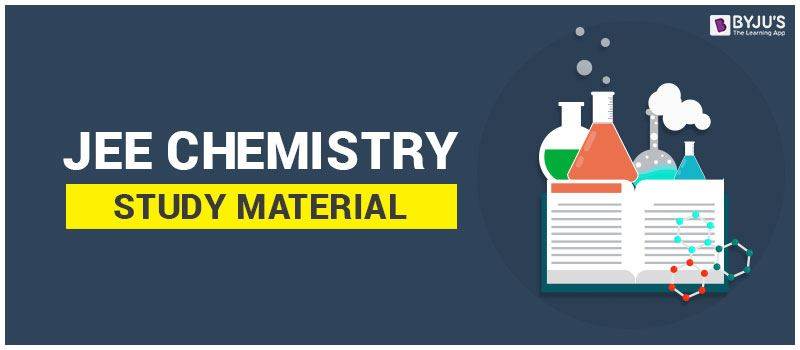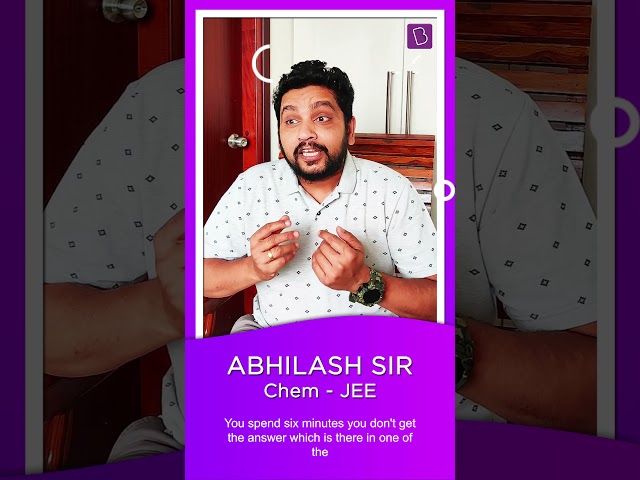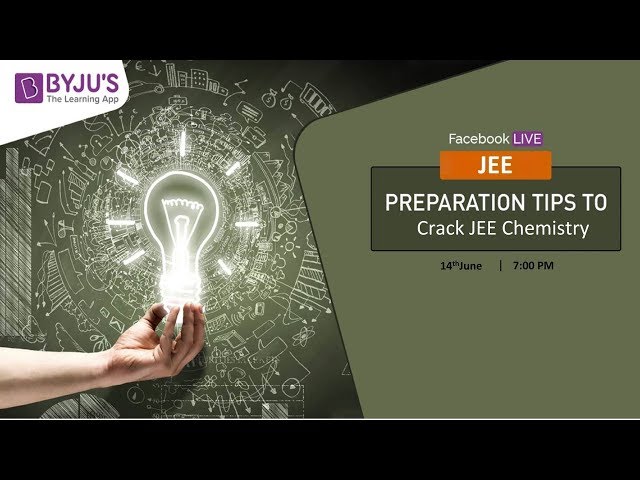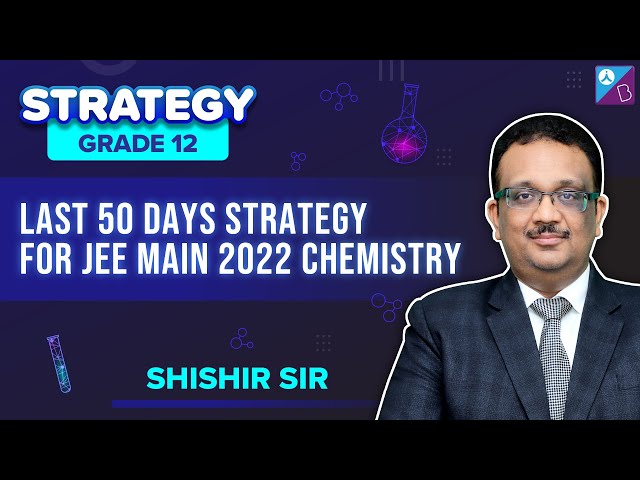
IIT JEE Chemistry Study Material – Chemistry is one of the most important and scoring subjects for JEE. The questions asked in the chemistry section are usually direct but students do have to cover a lot of topics. There are in fact three branches in chemistry which are physical chemistry, inorganic chemistry and organic chemistry.
However, each one of them is interesting to study in its own way. There are also many chapters in chemistry and some of the important ones include Environmental Chemistry, s and p block elements, d and f block elements, Biomolecules, Polymers, Chemistry in Everyday Life, Surface chemistry, Extractive metallurgy, Surface chemistry, classification of elements and periodicity in properties, coordination compounds. Candidates should mainly focus on these chapters while preparing for JEE Chemistry.
To help students prepare effectively and score better in IIT JEE Chemistry section we are providing a comprehensive set of JEE chemistry study material below.
JEE Study Material for Chemistry
Students can click on the links and access detailed information about each topic.
Inorganic Chemistry for IIT JEE
Organic Chemistry for IIT JEE
Physical Chemistry for IIT JEE
Important Things To Remember While Studying Chemistry
Chemistry is a scoring subject for most of the IIT JEE aspirants because it mostly goes on the basics with the difficulty curve remaining the same almost every year. The questions are more theoretical than calculative, making it the quickest subject to solve.
Unlike the other subjects, IIT JEE Chemistry is less about conceptual applications and more about planning. In order to score well in this section, the students must be well versed with all the formulas, named reactions, chemical equations, and periodic table trends as all these concepts constitute a major portion of IIT JEE Chemistry syllabus and the students can expect a lot of direct and indirect questions from the above-mentioned concepts.
The key to solving chemistry problems lies in developing a clear understanding of the fundamental concepts. Students need to have a solid conceptual foundation in order to solve IIT JEE Chemistry problems smoothly. Just memorizing the theory and formulas will never benefit a JEE aspirant in developing their problem-solving skills.
The IIT JEE Chemistry study material provided here aims to develop in students an understanding and evaluation of several basic concepts covered in Organic, Inorganic, and Physical Chemistry. The students can analyse JEE Chemistry important topics to get an idea of the marks allocation and weightage of different concepts covered in IIT JEE chemistry syllabus.
IIT JEE Preparation Strategy for Chemistry

How To Study Chemistry?
Here we will look at some useful chemistry study tips that will enable students to prepare and perform excellently in both the board and JEE exam.
- For physical chemistry, go through the concept first and then understand the formulae. Solve question on each formula. Make a small notebook and make a list of all the formulae chapter wise in that notebook. So while solving questions it will be quick to get the formula and if you practice like this, in a few months the formulae will be on your tips. Also if there are some similar kind of formulae or laws you are getting confused with then write them down on a chart or a paper with coloured pens, and paste them on the wall of your study room and go through it before going to sleep and on waking up in the morning. The picture will set in your brain and you will be able to recall it while solving questions or giving the exams.
- Coming to Inorganic chemistry, there are chapters if you command on, then this portion of chemistry will be easier. If a student has understood Chapter 3 of class 11th “Classification of elements and periodicity in properties” clearly then 80% of the inorganic chemistry is covered. Because the concepts explained in this chapter will be applied again and again in various other chapters of the inorganic chemistry. One more tip for inorganic chemistry is learning the periodic table, if the periodic table is on your tips, you will not be leaving even a single question unanswered from this portion in JEE. Do not mug up the periodic table because by doing this you will again forget. To make it interesting frame sentences using elements like for Oxygen family: Oh (O-Oxygen) saan (S- Sulphur) se (Se- Selenium) te (Te- Tellurium) po (Po- Polonium). Like this, more sentences can be framed for each of the groups and learning periodic table can be made full of fun.
- Next comes the organic chemistry which most of the students are scared but this is the most interesting and high weightage section for JEE. There are two organic chapters in 11th class, the first one is “Some basic principles and techniques in Organic chemistry”-all fundamentals of the organic chemistry will be explained in this chapter. So once you are through with this chapter, the next chapter which is hydrocarbons becomes much easier. All the concepts which you will learn in these chapters will be applied in class 12th organic chemistry chapters. Organic chemistry will have more weightage in JEE as the number of chapters from this section is more in the 12th class. Strategy for chapter wise preparation is given on BYJU’S.
- The last section of the chemistry will include general topics like polymers, environmental chemistry, and chemistry in everyday life. Such chapters are very easy for candidates who are preparing for JEE.
Quick Chemistry Tips

Simple Preparation Tips to Crack JEE Chemistry

JEE Main 2022 – Lats 50 Days Chemistry Preparation Strategy

Frequently Asked Questions On IIT JEE Chemistry Study Material
Which are the best books for JEE chemistry?
Some of the best books for IIT JEE Chemistry are books written by authors like J.D. Lee, R.C. Mukherjee, o.p. Tandon, Morrison and Boyd amongst others.
Is NCERT enough for JEE Chemistry?
Normally, in JEE Main the chemistry section is easy and most scoring. Questions are direct. Candidates can prepare well using the NCERT books and most of the time it is enough for JEE preparation. They just need to develop a thorough understanding of the concepts and have a good memory in remembering the formulas, symbols and reactions.
Is solving NCERT exemplar a good exercise for JEE Main?
Generally, when we talk about NCERT Exemplars these are basically practice-books which contain questions of a higher level that further help in-depth learning. Aspirants can make use of the exemplars to develop better problem-solving skills.
Is Inorganic Chemistry more important for JEE?
Usually, the majority of questions are asked from this section. Candidates should have a good understanding of the concepts in organic chemistry. However, other parts like inorganic chemistry and physical chemistry are equally important. Students should have a good knowledge of all the parts. Sometimes the concepts are interrelated in chemistry.
What other study materials are helpful for JEE preparation?
Candidates can seemingly make use of other study materials apart from books. They can watch video lectures, read through notes, use e-books, practice using question papers and also attempt mock tests. These are all easily available and candidates should use them to study productively and boost their JEE preparation.
Comments